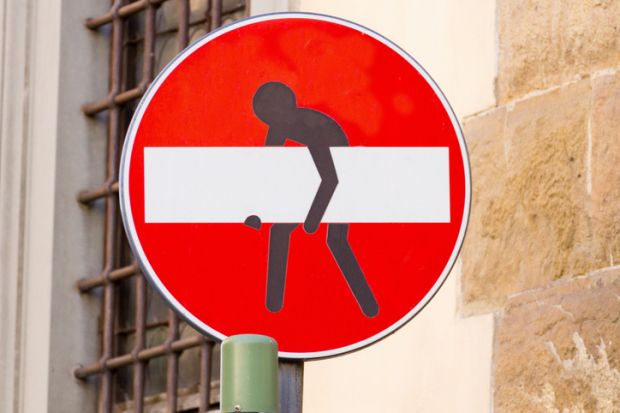Universities may need to do more to monitor whether their academics are gaming citations, as techniques for boosting them become increasingly sophisticated, it has been warned.
The call comes following a report on research integrity that details some of the ways that academics and journals – and even institutions – around the world may be trying to influence citation rates to further their standing in the research community.
According to the authors of the report, from Web of Science owners Clarivate, it is becoming increasingly difficult to root out citation gaming when it involves multiple players.
Nandita Quaderi, editor-in-chief of Web of Science, told Times Higher Education that since 2005 it had suppressed metrics on journals whose data suggested abnormal rates of citation between articles in the same publication.
It has also taken action where its analyses had indicated evidence of “citation stacking”, where referencing activity involving more than one journal was deemed to be unusual.
But, Dr Quaderi warned, “what we are seeing more of now is much more subtle behaviour. Back in 2005 it was quite easy to detect these because the behaviour [was] rare and it was blatant. And it is getting harder now to make those calls because it is becoming more sophisticated.”
Fellow co-author Martin Szomszor, a director at Clarivate’s Institute for Scientific Information, added that the problem was that citation gaming was increasingly being spread out over several journals and individuals.
“If you can actually persuade five other journals to establish this kind of behaviour, any individual journal does not stand out. And that is when an analysis needs to become more complex,” he said.
Dr Quaderi said the Web of Science now had “editorial expressions of concern” placed on journals when its statistics indicated something was awry but the evidence was not clear enough for a full suppression of data.
But the report warns that there are now so many competing motivations in the research system – from individual academics and universities seeking to boost their reputation to governments keen to build competitive advantages – that everyone had to be involved in preserving research integrity.
“Journals can gain, individuals can gain but also institutes and regions can gain and that adds another level to the motivations and another level to the analyses that we need to do,” Dr Quaderi said.
Dr Szomszor said in particular “the responsibility for the institution to monitor the conduct of their academics is an area where we think there could be some development”.
He also said that “funders could play an important role here. It’s in their own interest, because they want to ensure that research they fund is foundational for future research.”
However, despite indications that gaming seemed to increasingly involve multiple actors, Dr Quaderi said in plenty of cases it was still individuals gaming citations rather than an organised activity.
“I think there are cases where it is hard to think of an explanation other than organisation. In other cases, I think it is possible for individuals to be doing this. I don’t think it would be fair to say there is collusion in all cases.”
Register to continue
Why register?
- Registration is free and only takes a moment
- Once registered, you can read 3 articles a month
- Sign up for our newsletter
Subscribe
Or subscribe for unlimited access to:
- Unlimited access to news, views, insights & reviews
- Digital editions
- Digital access to THE’s university and college rankings analysis
Already registered or a current subscriber? Login








